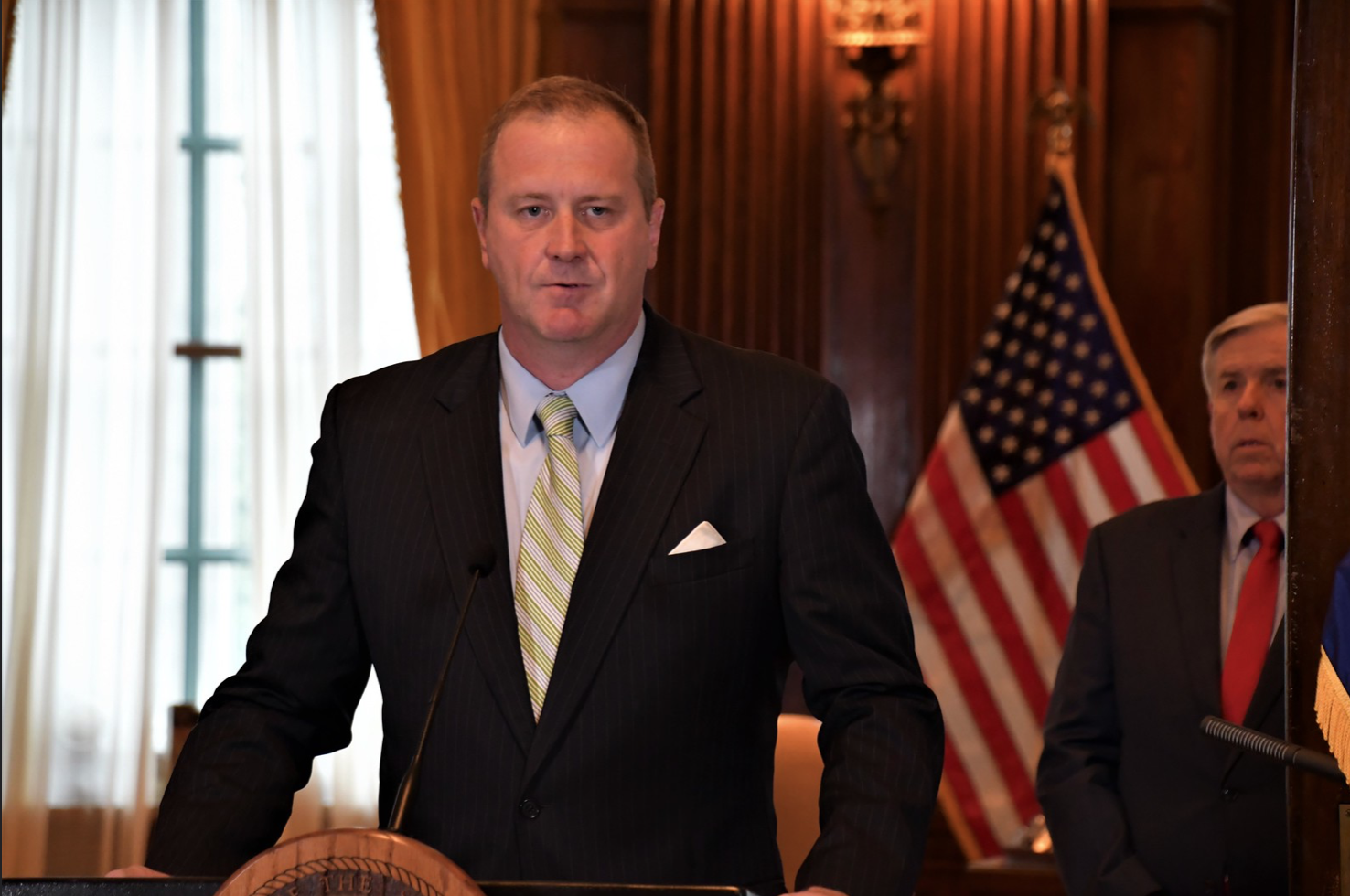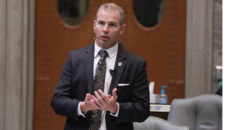Attorney General Schmitt will ask US Supreme Court to review case
After the Eighth Circuit Court of Appeals upheld the preliminary injunction placed on Missouri’s restrictive abortion law, the Attorney General’s Office said it will ask the U.S. Supreme Court to step in.
In its opinion, the Eighth Circuit said Missouri “failed to demonstrate that its policy priorities outweigh the public interest in access to pre-viability abortions or the significant interference with [Planned Parenthood’s] business and the harm to pregnant individuals who might seek a pre-viability abortion before final judgment in this case.”
It upheld a lower court’s decision to impose a preliminary injunction on the law — meaning it still cannot be enforced.
Republican Attorney General Eric Schmitt said his office will ask the U.S. Supreme Court to review the case. The nation’s highest court has already agreed to take up a Mississippi law banning abortions after 15 weeks.
“My son Stephen has shown me the inherent beauty and dignity in all life, especially those with special needs. While we’re disappointed in the Eighth Circuit’s decision, their decision does provide an avenue for this case to be heard by the Supreme Court, and we plan to seek review in the Supreme Court,” Schmitt said in a statement to The Missouri Times. “I have never and will never stop fighting to ensure that all life is protected.”
HB 126 — championed by Republican Rep. Nick Schroer and signed into law by Gov. Mike Parson in 2019 — sought to ban abortions after eight weeks. It included “nestled” components placing restrictions at 14, 18, and 20 weeks. The bill did not allow for exemptions for rape or incest survivors.
The bill also sought to ban abortions solely based on a diagnosis of Down syndrome. A federal judge blocked the bill from being implemented the day before it was set to go into effect.
“Given the Eighth Circuit’s January ruling in a similar Arkansas pro-life case, I was not surprised by today’s decision of the court to uphold the preliminary injunction of two very important pieces of the ‘Missouri Stands for the Unborn Act.’ While I am disappointed in this ruling, I remain very hopeful that our Attorney General Eric Schmitt will take this decision to the U.S. Supreme Court, [which] has vowed to take up a similar Mississippi law later this year,” Schroer said. “Keep in mind, 95 percent of the strongest pro-life bill in the nation remains intact and is Missouri law today. I will pray that our Lord guides our Supreme Court justices in the coming months as they will hopefully take up this issue and other pro-life laws across our great nation.”
A spokesperson for the governor did not immediately respond to a request for comment.

In its opinion, the Eighth Circuit pointed to a previous Arkansas case in which, like in Missouri, the state argued its abortion law was merely a regulation of pre-viability abortions instead of a ban. However, the Arkansas law ultimately blocked women from making a decision to terminate a pregnancy in general — thus the court said it constituted a ban which is unconstitutional.
The court said the gestational age provisions in Missouri’s HB 126 indeed are “bans.” It also called the prohibition of abortions based on a diagnosis of Down syndrome is also a “ban” because it would prevent women from receiving pre-viability abortions in general.
The court said: “Missouri’s focus on the number of women unaffected by the gestational age provisions is misplaced. The irreparable harm analysis turns on the nature of the injury likely to result from the challenged action, not the number of people who would be injured.”
Out of the 2,910 abortions performed in Missouri in 2018, 1,210 were pregnancies terminated at eight weeks or less, according to statistics from the Department of Health and Senior Services. In 2017, 3,903 abortion procedures occurred; 1,673 were at eight weeks or less.
Judge Jane Kelly authored the opinion and was joined by Judge David Stras and Judge Roger Wollman. Stras, appointed to the court by former President Donald Trump, dissented on the Down syndrome provision.
“There may well be women in Missouri who terminate their pregnancies solely because of a positive Down syndrome diagnosis, test, or screening, but the problem is that Reproductive Health Services has not identified any of them. It instead asks us to fill in the gaps — basically, guess — that there are women out there who do so, despite the variety of ‘health, family, financial, [and] other personal reasons that can factor into a decision to terminate a pregnancy.”

Kaitlyn Schallhorn was the editor in chief of The Missouri Times from 2020-2022. She joined the newspaper in early 2019 after working as a reporter for Fox News in New York City.
Throughout her career, Kaitlyn has covered political campaigns across the U.S., including the 2016 presidential election, and humanitarian aid efforts in Africa and the Middle East.
She is a native of Missouri who studied journalism at Winthrop University in South Carolina. She is also an alumna of the National Journalism Center in Washington, D.C.
Contact Kaitlyn at kaitlyn@themissouritimes.com.






























